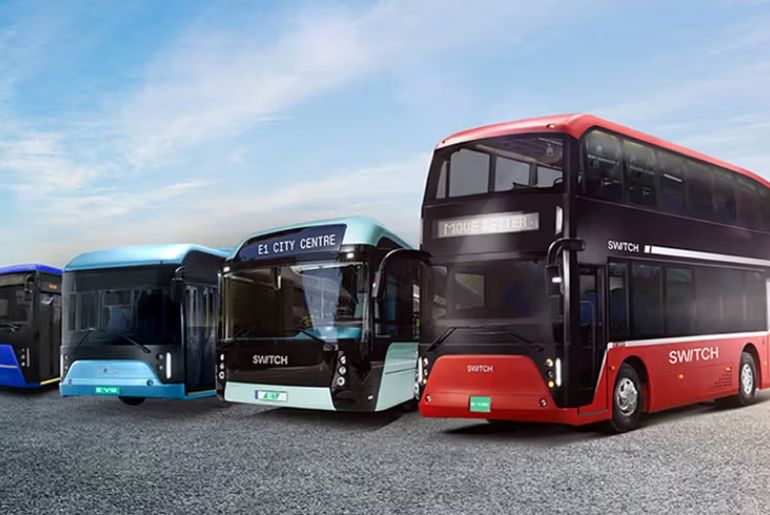Switch Mobility, the electric-vehicle (EV) subsidiary of Ashok Leyland, has achieved profitability in the first half of fiscal year 2025–26, which is an important turning point in the company’s transition from traditional commercial vehicles to electric mobility. This profitability comes amid strategic operational shifts and costoptimisation measures designed to enhance global competitiveness.
Manufacturing Shift and Operational Strategy
To optimise costs and streamline production, Switch Mobility is relocating its bus manufacturing operations from the United Kingdom to the United Arab Emirates (Ras Al Khaimah). This move is expected to reduce operational expenses while improving logistics efficiency for serving the GCC and European markets.
In addition to the manufacturing shift, the company is implementing synergies with Ashok Leyland, including shared technology, supply chains, and administrative infrastructure, which have contributed significantly to the turnaround from prior losses.
Battery Manufacturing and Investment Plans
Switch Mobility is also planning a ₹5,000 crore investment in India to set up a dedicated battery manufacturing facility. The first phase will focus on battery pack assembly, followed by cell manufacturing in the later stage. This vertical integration strategy aims to strengthen localisation, cost efficiency, and supply chain control, enabling the company to scale its EV offerings more effectively.
Market and Strategic Implications
-
Achieving profitability signals strong market traction for Switch Mobility’s electric buses and commercial vehicles.
-
The UAE manufacturing base positions the company for efficient export to GCC and European markets, leveraging lower costs and strategic location.
-
Battery manufacturing investment highlights Ashok Leyland’s commitment to vertical integration, supporting India’s growing EV infrastructure and enhancing long-term competitiveness.
The strategic moves are part of Ashok Leyland’s broader EV roadmap, which aims to accelerate adoption of electric commercial vehicles in India and internationally while maintaining operational efficiency and cost discipline.
Industry Impact
The profitability milestone for Switch Mobility underscores the viability of electric commercial vehicle manufacturing in emerging markets, demonstrating that strategic operational adjustments, cost optimisation, and investment in localised battery production can deliver positive financial results.
This development also reinforces Ashok Leyland’s position as a pioneer in India’s EV commercial vehicle sector, paving the way for greater adoption of electric buses, vans, and last-mile delivery vehicles.

